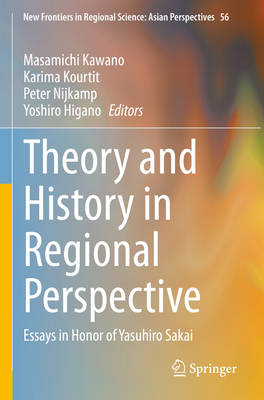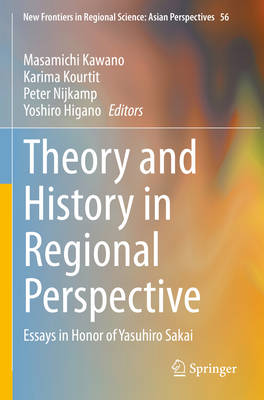
- Retrait gratuit dans votre magasin Club
- 7.000.000 titres dans notre catalogue
- Payer en toute sécurité
- Toujours un magasin près de chez vous
- Retrait gratuit dans votre magasin Club
- 7.000.0000 titres dans notre catalogue
- Payer en toute sécurité
- Toujours un magasin près de chez vous
Theory and History in Regional Perspective
Essays in Honor of Yasuhiro Sakai
Description
This collection of essays presents insight and methodology that are highly relevant for readers today as they consider the future of the world they live in. Experiencing the COVID-19 pandemic, people have realized how fragile the current economy is and the necessity for reconstructing the socio-economic system. That system, which was considered the default for so long, was succeeded by the analytical framework of economics and regional science. The contents of this book are diversified, as are the achievements of Prof. Yasuhiro Sakai, to whom this volume is dedicated, and cover a wide area from mathematical and experimental economics to conventional and emerging fields of regional science. Some are timeless topics that have had new life breathed into them.
Part I deals with, among other areas, risk management with uncertain events; the effectiveness and impacts of regulation and friction related to trading; the stability of strategic behavior and market equilibrium; and sustainable regional development and urban planning from the long-term perspective. Part II also presents a diversity of subjects, including input-output analysis and computable general equilibrium (CGE) modelling for internal as well as external structure and network linkage, such as a value chain; openness and creativity as related to competition among cities and regions; dispersion versus concentration; and inequality versus equality.
Spécifications
Parties prenantes
- Editeur:
Contenu
- Nombre de pages :
- 483
- Langue:
- Anglais
- Collection :
- Tome:
- n° 56
Caractéristiques
- EAN:
- 9789811666971
- Date de parution :
- 16-05-23
- Format:
- Livre broché
- Format numérique:
- Trade paperback (VS)
- Dimensions :
- 156 mm x 234 mm
- Poids :
- 703 g

Les avis
Nous publions uniquement les avis qui respectent les conditions requises. Consultez nos conditions pour les avis.





